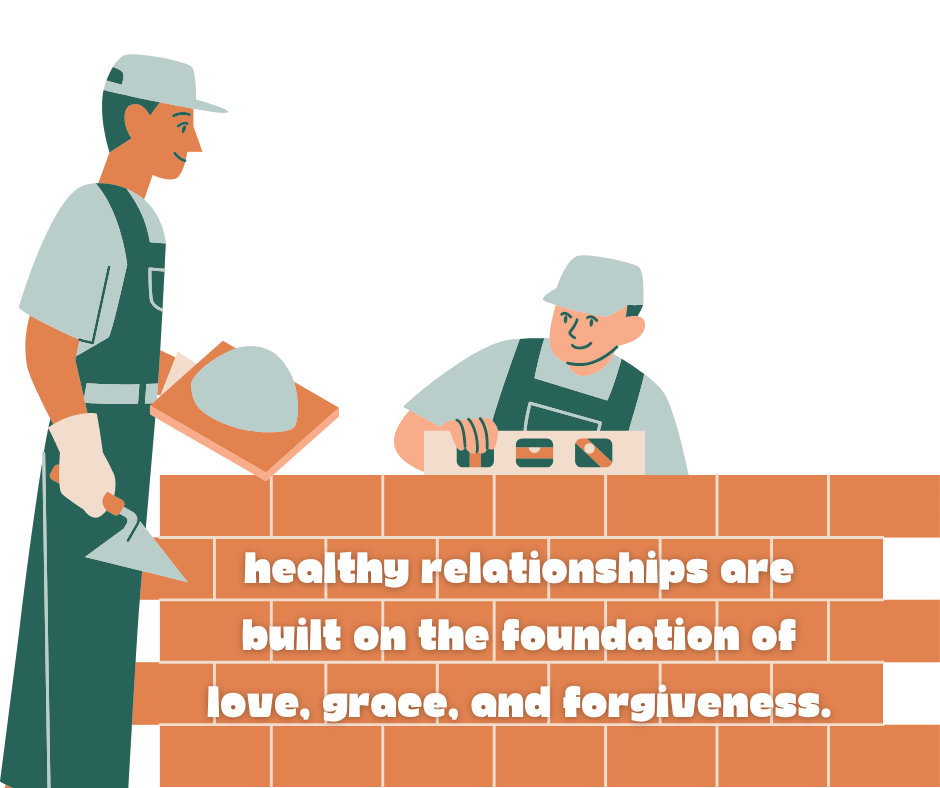Building Healthy Relationships on Love, Grace, and Forgiveness
Healthy relationships are built on the foundation of love, grace, and forgiveness. The Bible consistently emphasizes these virtues as essential for nurturing and sustaining meaningful connections with others.
Scripture References:
- Colossians 3:12–13 (ESV): “Put on then, as God’s chosen ones, holy and beloved, compassionate hearts, kindness, humility, meekness, and patience, bearing with one another and, if one has a complaint against another, forgiving each other; as the Lord has forgiven you, so you also must forgive.”
- Ephesians 4:32 (ESV): “Be kind to one another, tenderhearted, forgiving one another, as God in Christ forgave you.”
- Proverbs 17:9 (ESV): “Whoever covers an offense seeks love, but he who repeats a matter separates close friends.”
- 1 Corinthians 13:4–7 (ESV): “Love is patient and kind; love does not envy or boast; it is not arrogant or rude. It does not insist on its own way; it is not irritable or resentful; it does not rejoice at wrongdoing, but rejoices with the truth. Love bears all things, believes all things, hopes all things, endures all things.”
Love as the Foundation:
The Bible teaches that love is the core of healthy relationships. In 1 Corinthians 13:4–7, love is described as patient, kind, and forgiving. It does not keep a record of wrongs and always protects, trusts, hopes, and perseveres. This unconditional love serves as the bedrock upon which all other relational virtues are built.
Grace:
Grace involves extending kindness and forgiveness, even when it’s undeserved. Ephesians 4:32 instructs us to be kind and compassionate, forgiving each other just as God forgave us in Christ. Similarly, Colossians 3:13 urges us to bear with one another and forgive grievances, reflecting the forgiveness we’ve received from the Lord. This grace fosters an environment where relationships can thrive, free from the burden of resentment.
Mutual Forgiveness:
Forgiveness is a reciprocal act that strengthens relationships. Proverbs 17:9 highlights that love prospers when a fault is forgiven, but dwelling on it separates close friends. By forgiving others, we mirror God’s forgiveness toward us, promoting harmony and unity.
Application:
- Embrace Unconditional Love: Seek to embody the qualities of love described in 1 Corinthians 13:4–7. Practice patience, kindness, and humility in your interactions.
- Extend Grace: In moments of conflict, choose to forgive as God has forgiven you. This act of grace can heal wounds and restore relationships.
- Foster Forgiveness: When offenses occur, address them promptly and forgive wholeheartedly. This approach prevents bitterness and strengthens the bond between individuals.
Prayer:
Heavenly Father, thank You for Your unconditional love and forgiveness. Help me to reflect these qualities in my relationships. Grant me the grace to forgive as You have forgiven me, and to build connections rooted in love and understanding. In Jesus’ name, Amen.


